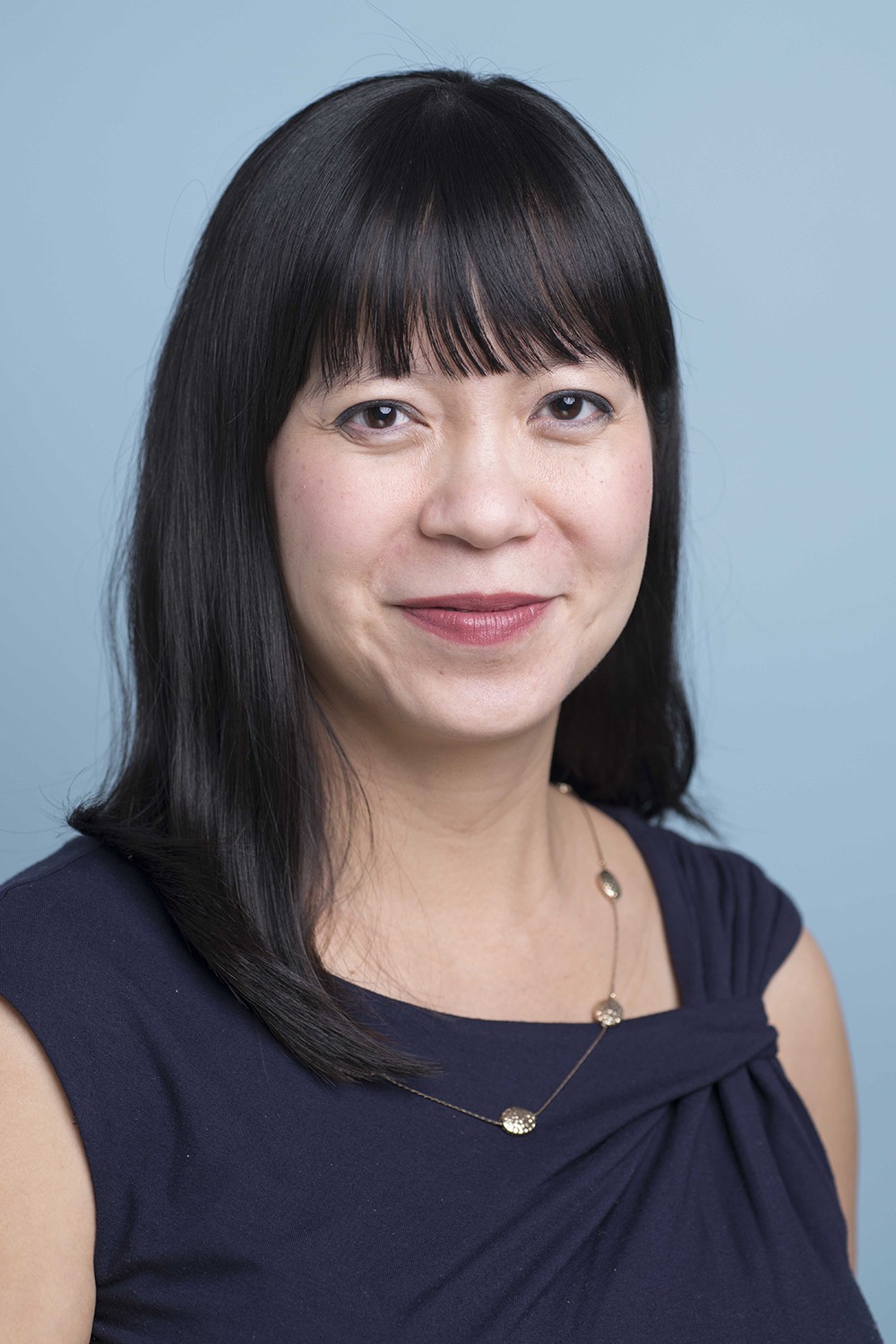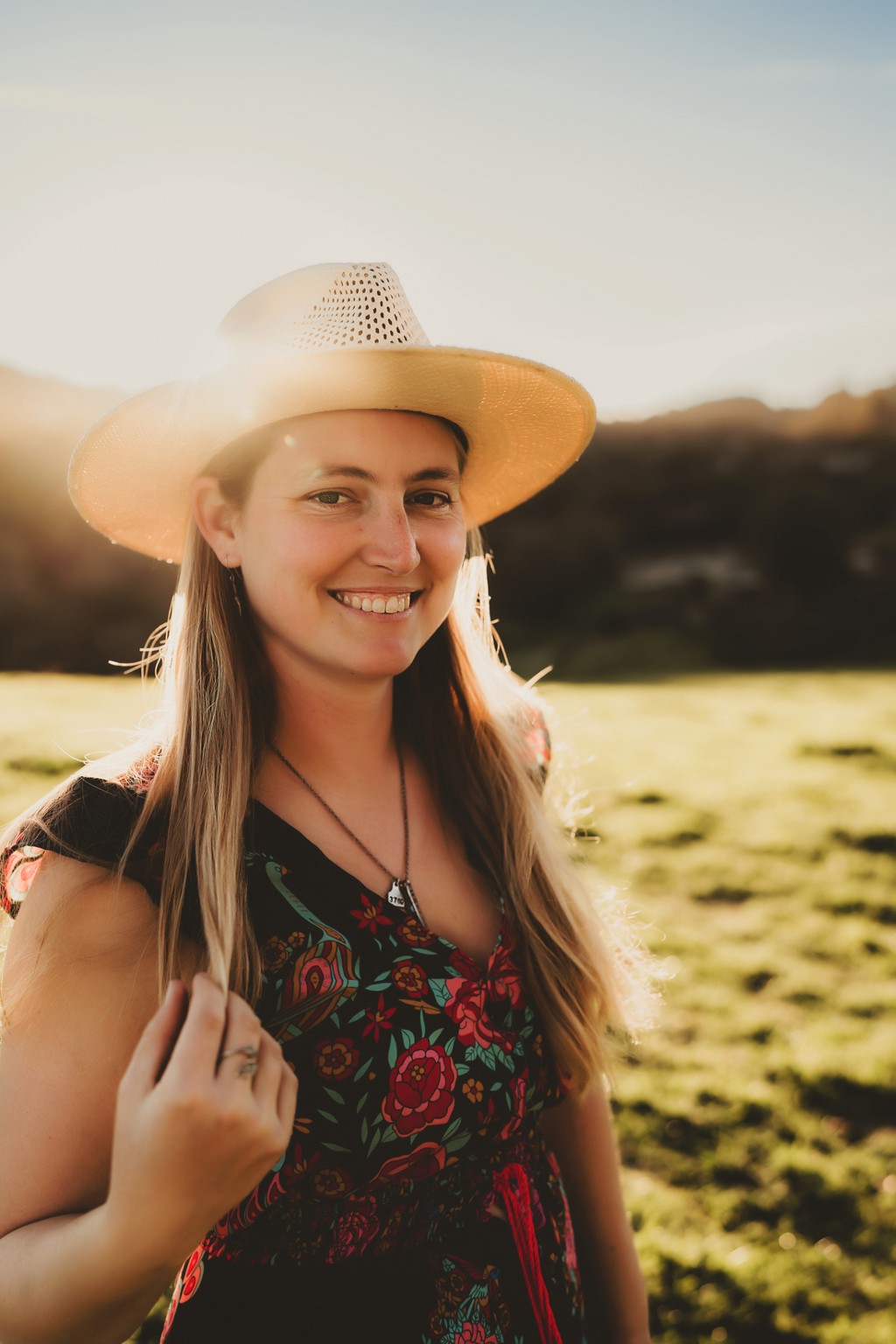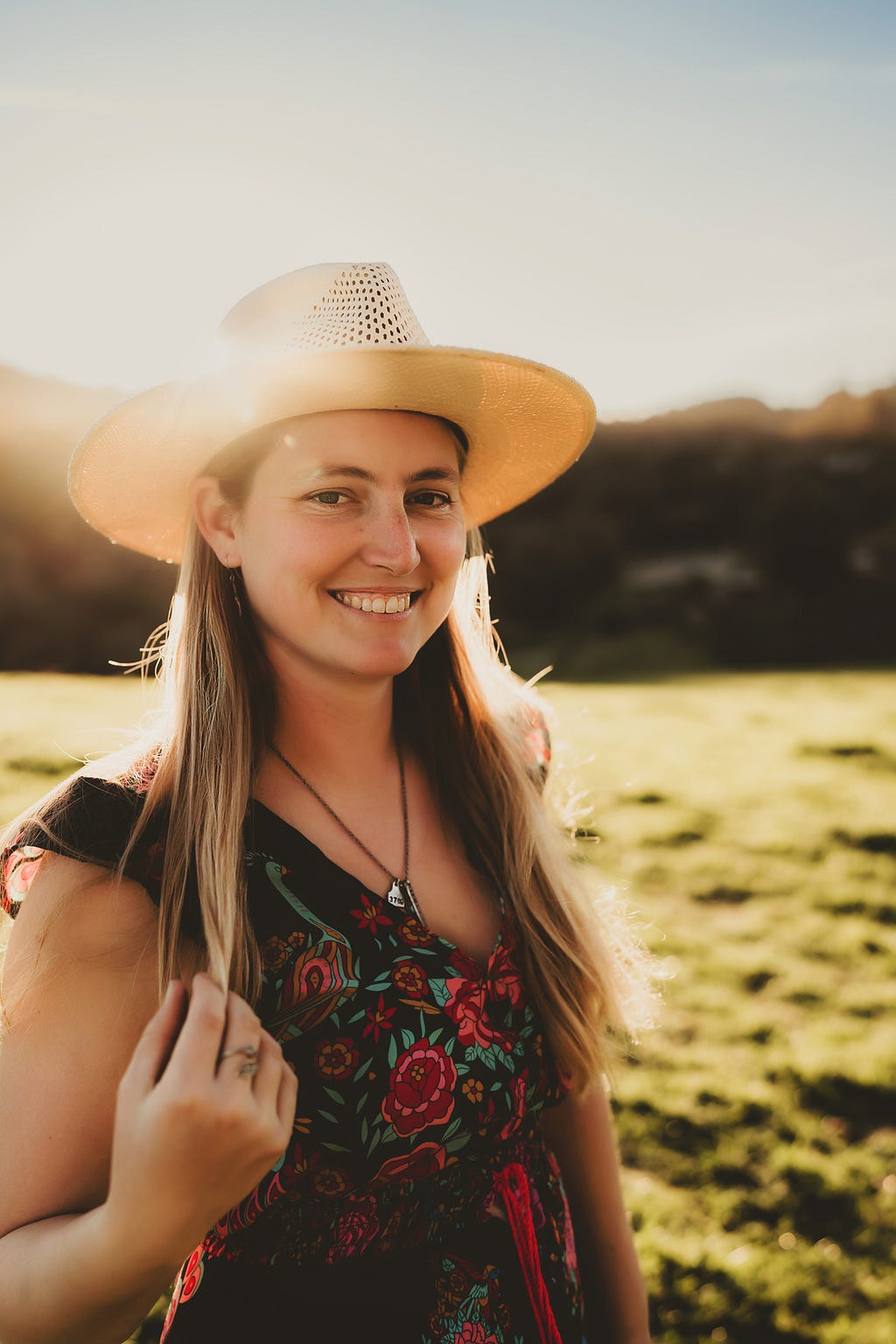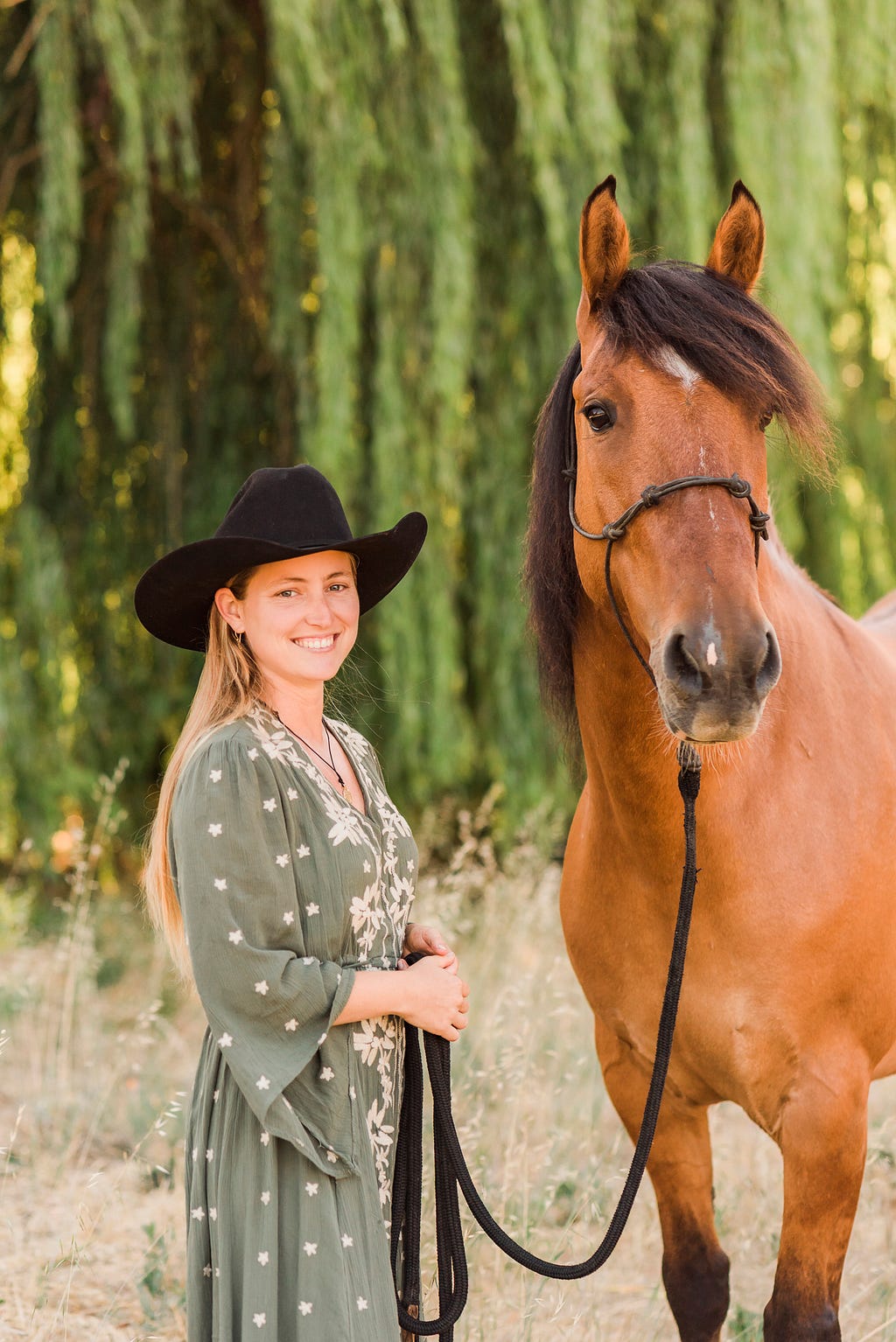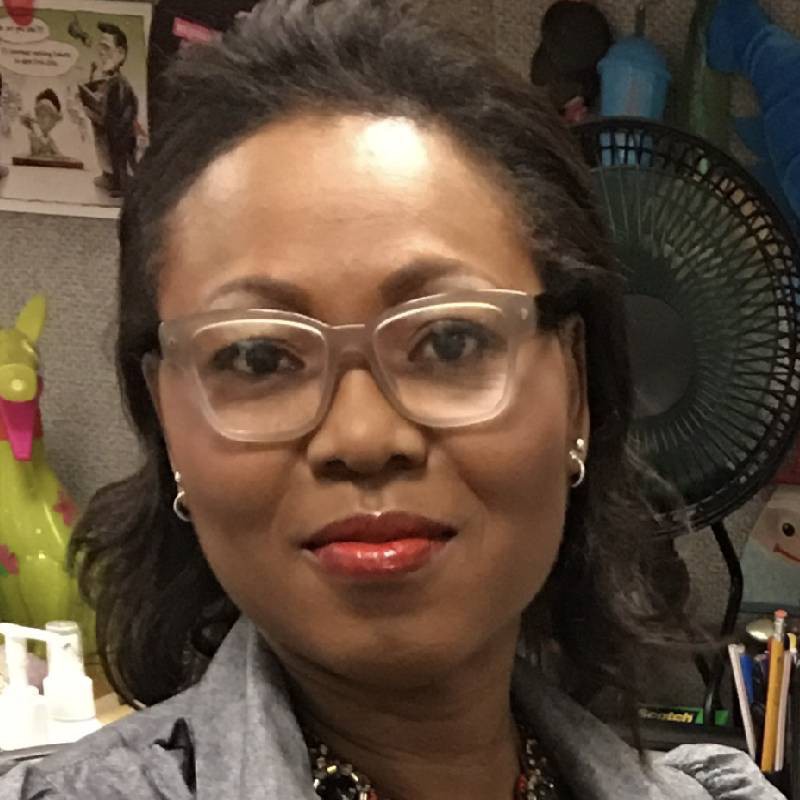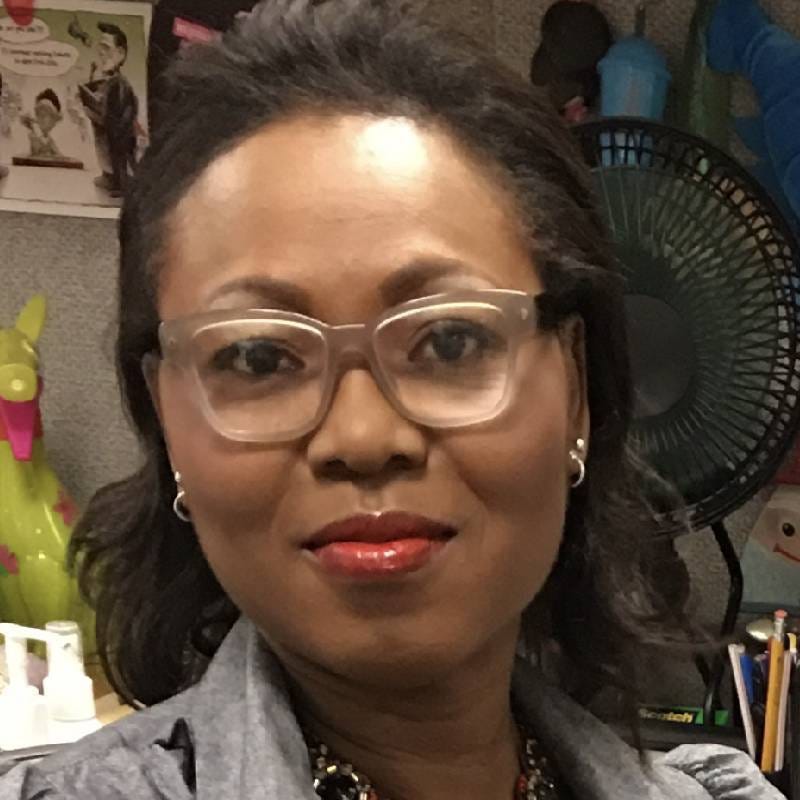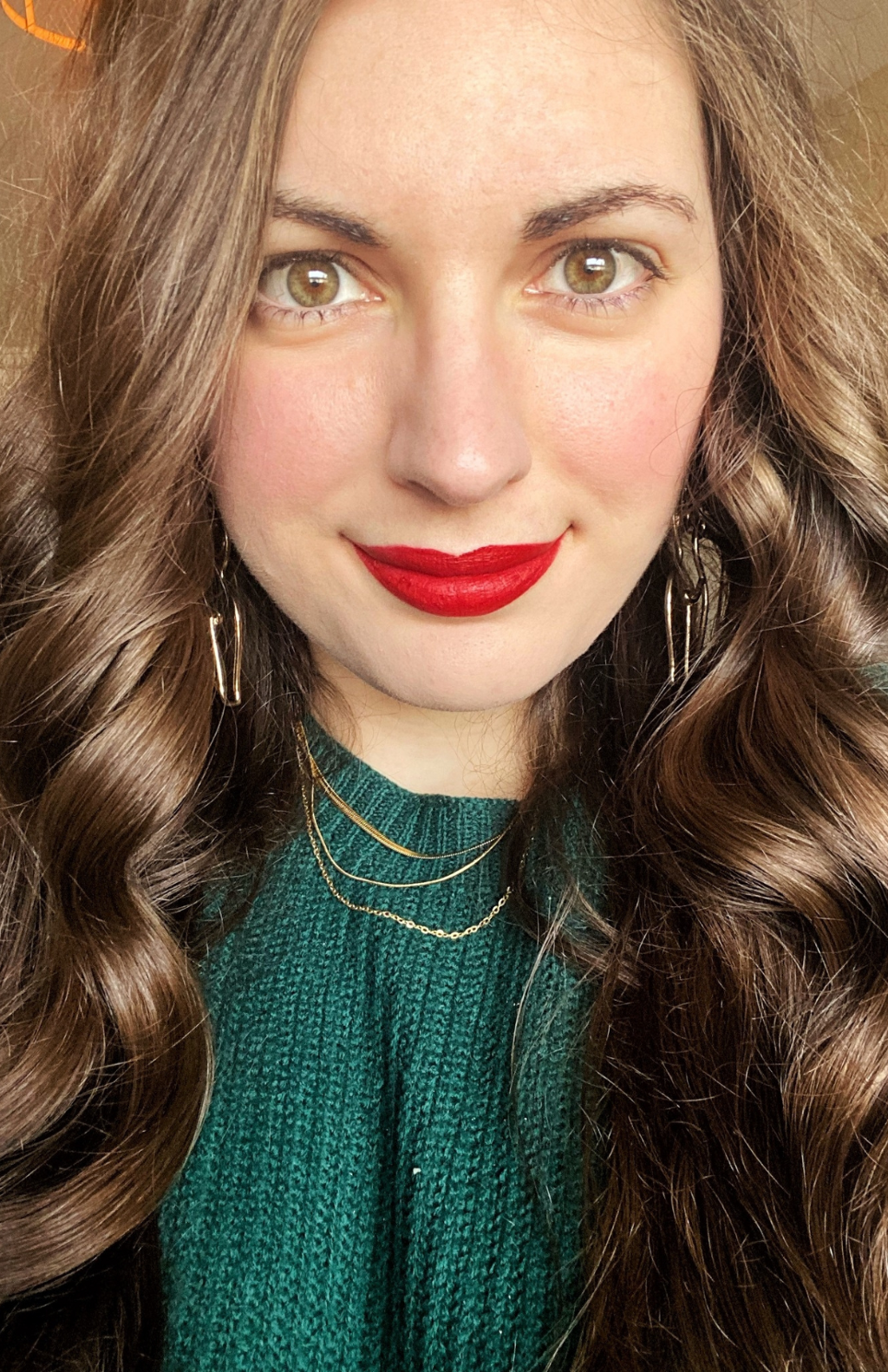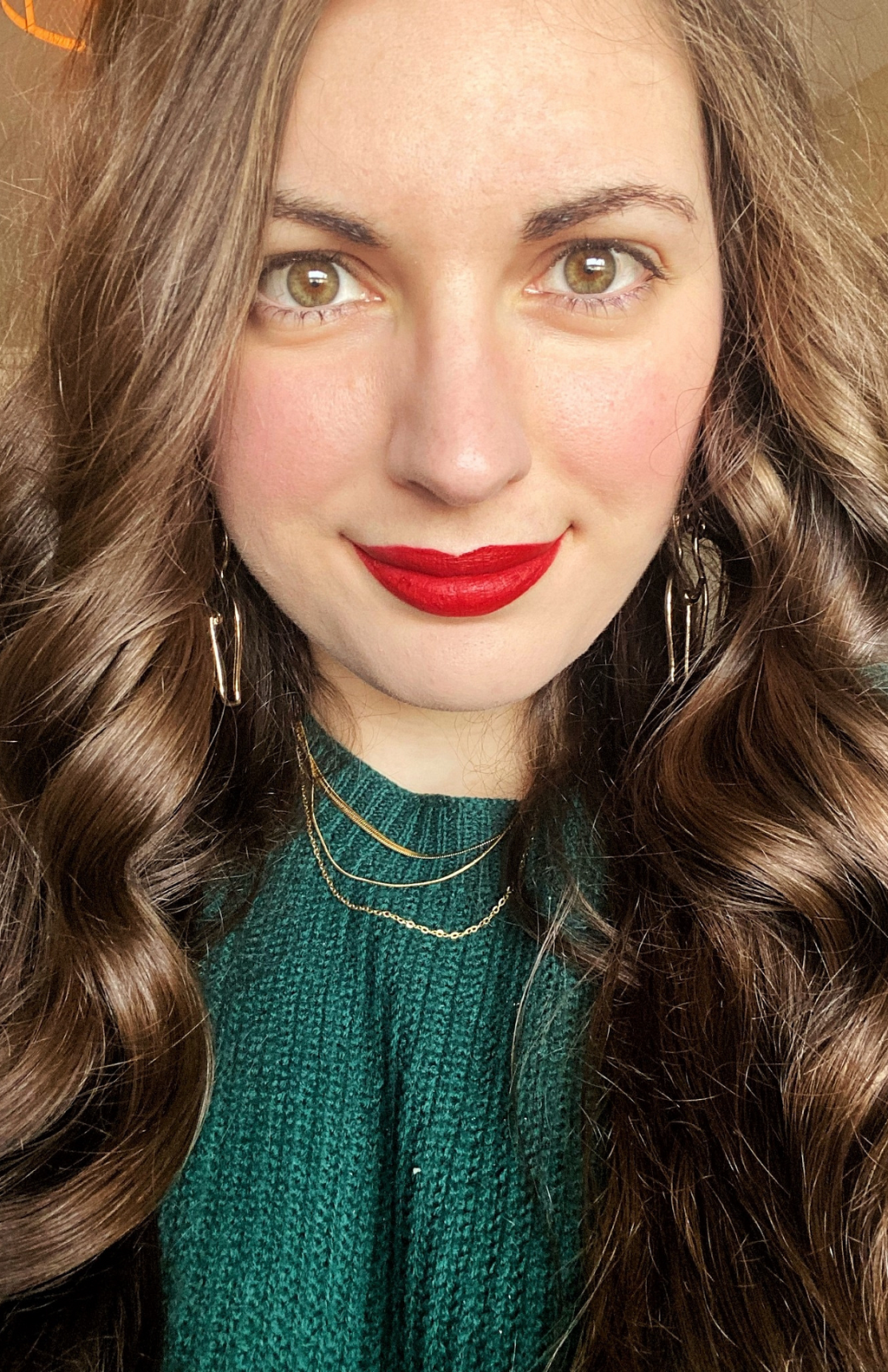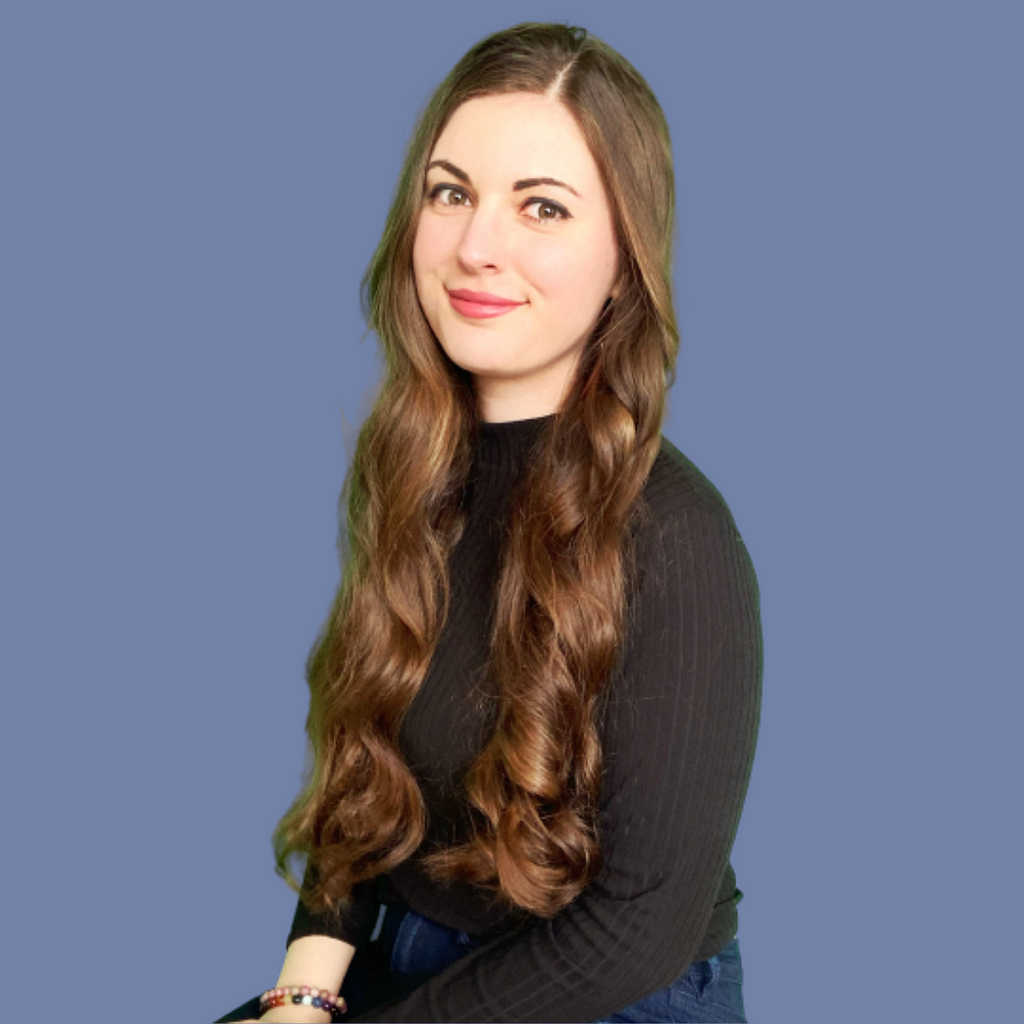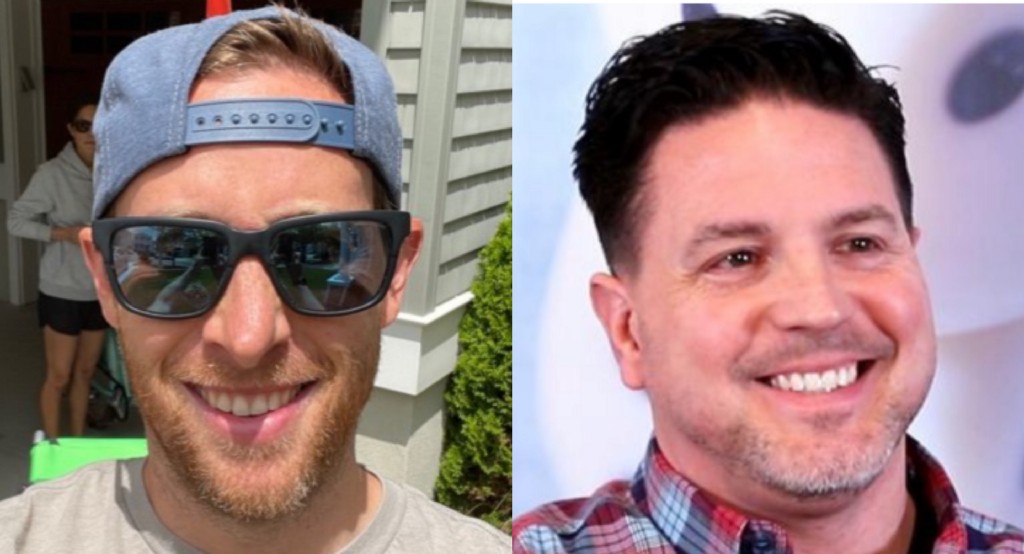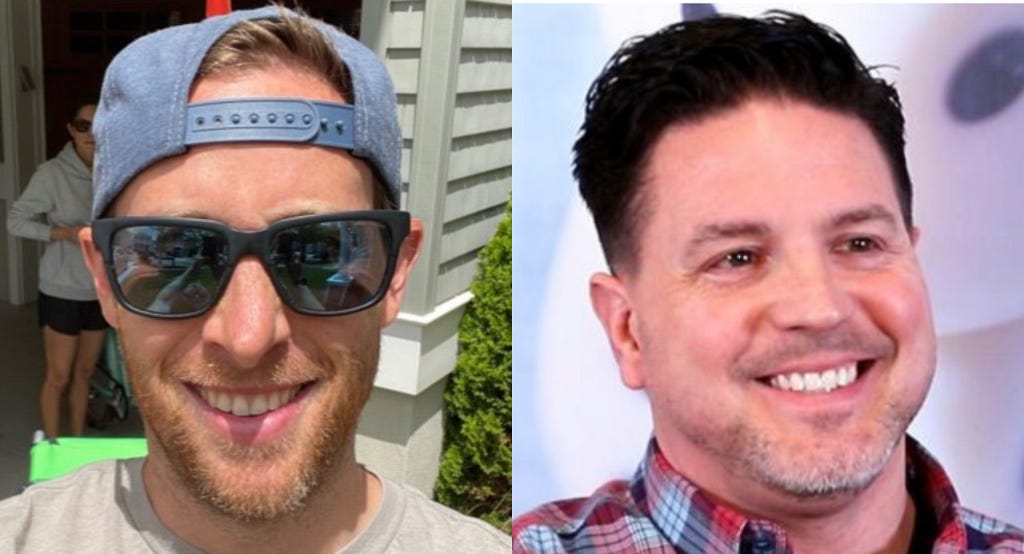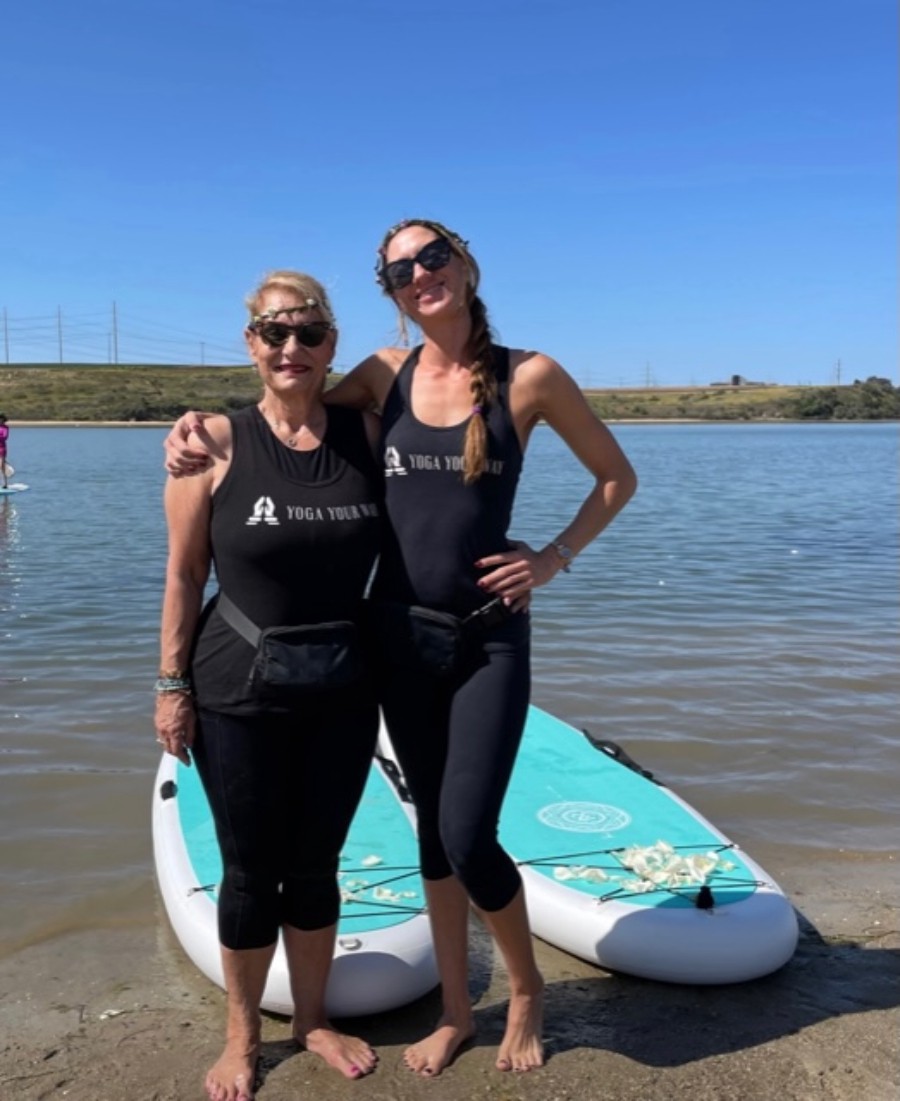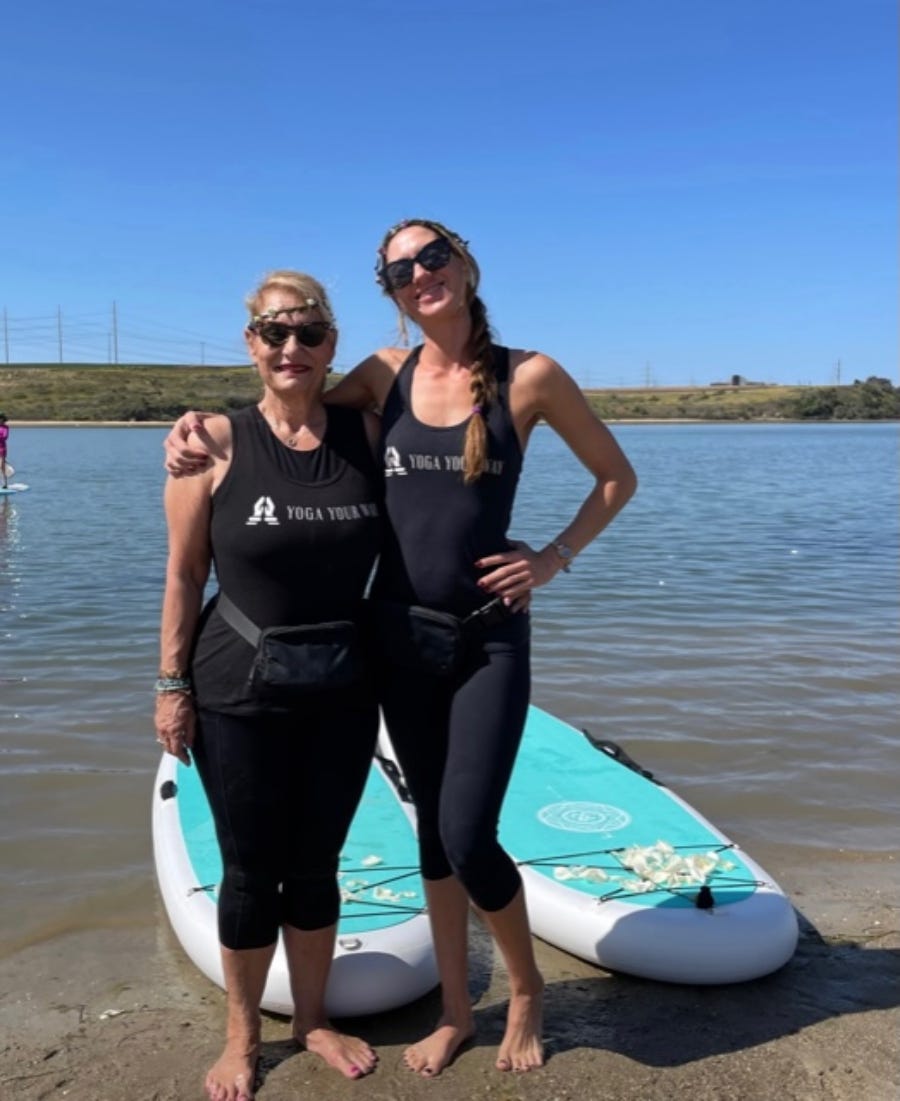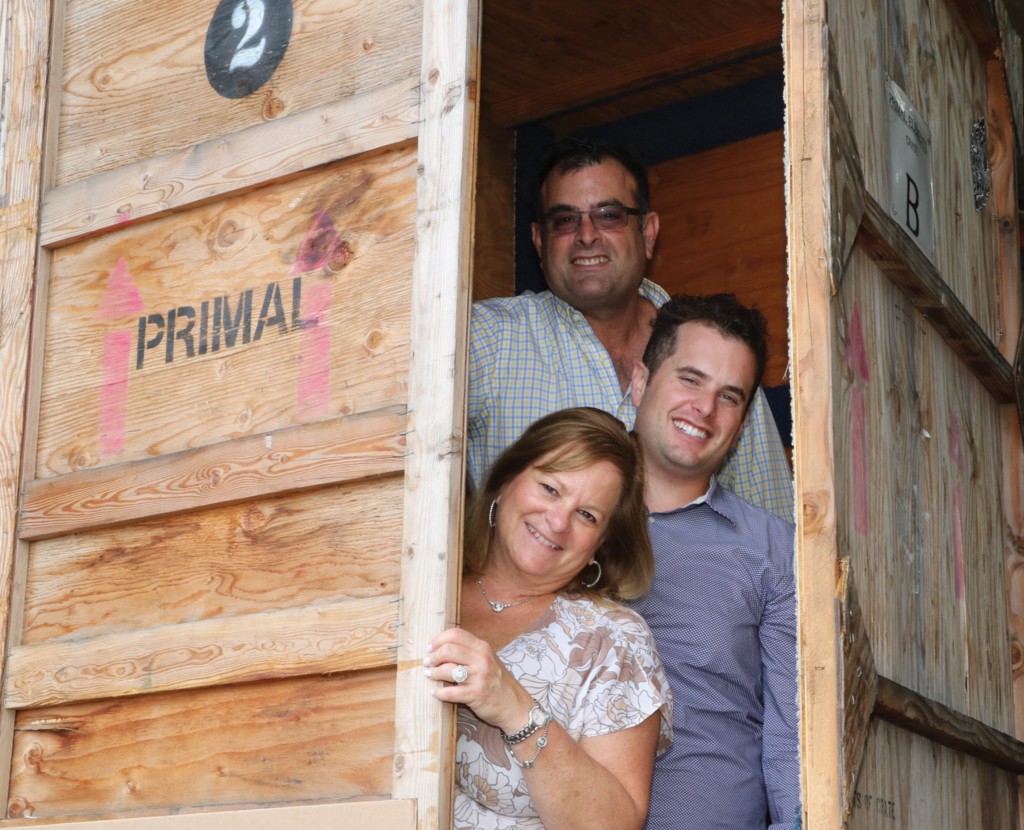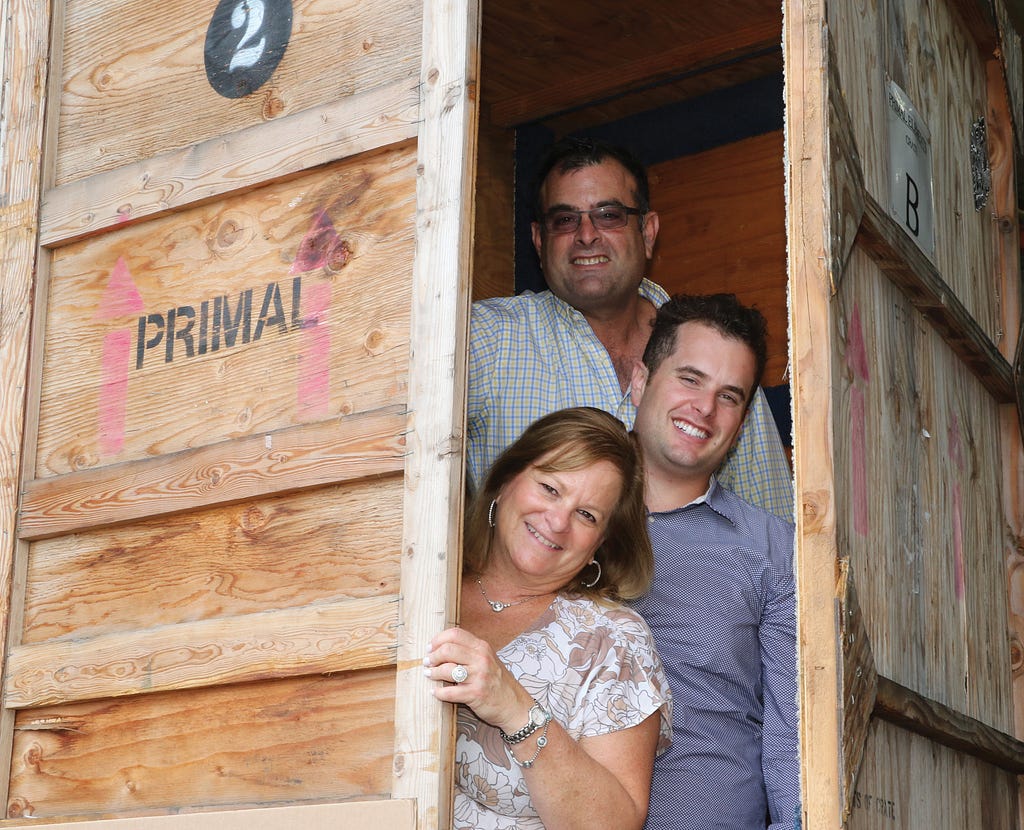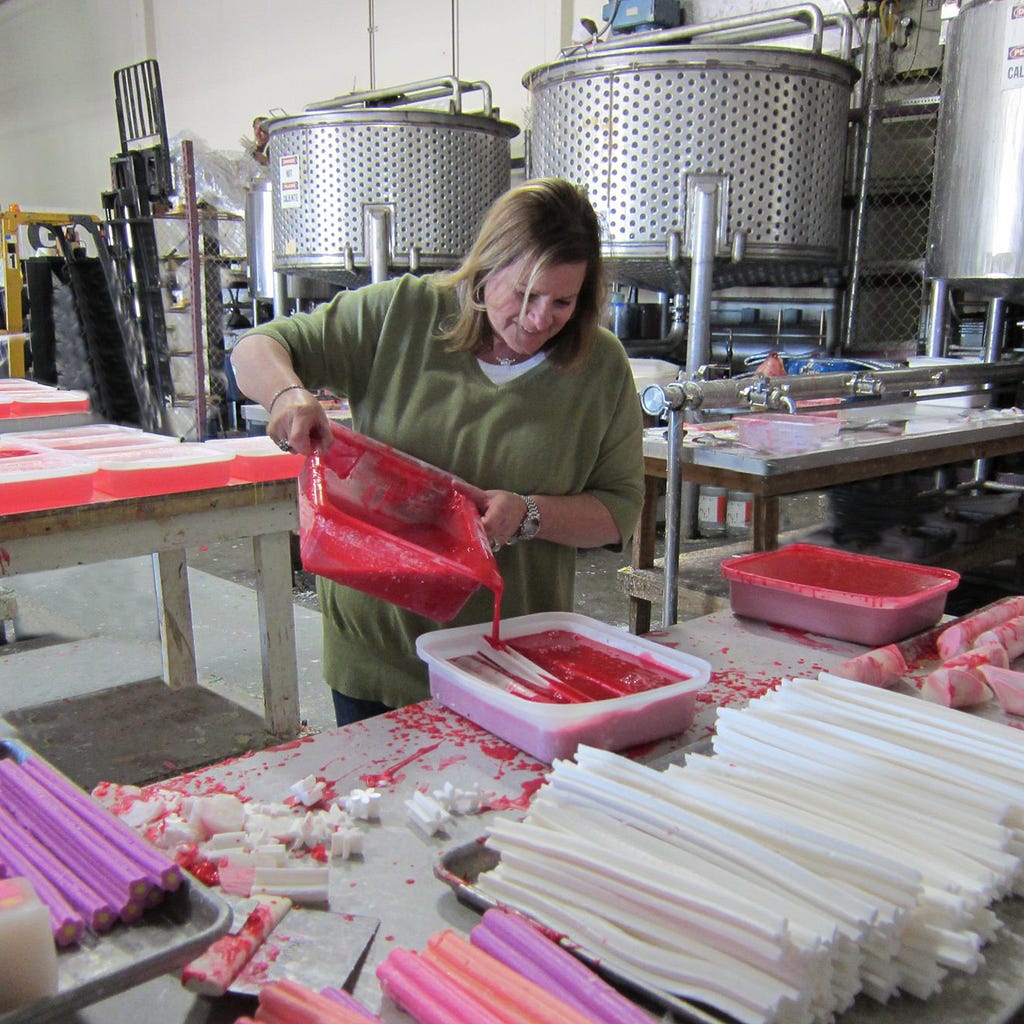Female Disruptors: Virginia Lam Abrams of Starry On The Three Things You Need To Shake Up Your Industry
An Interview With Candice Georgiadis
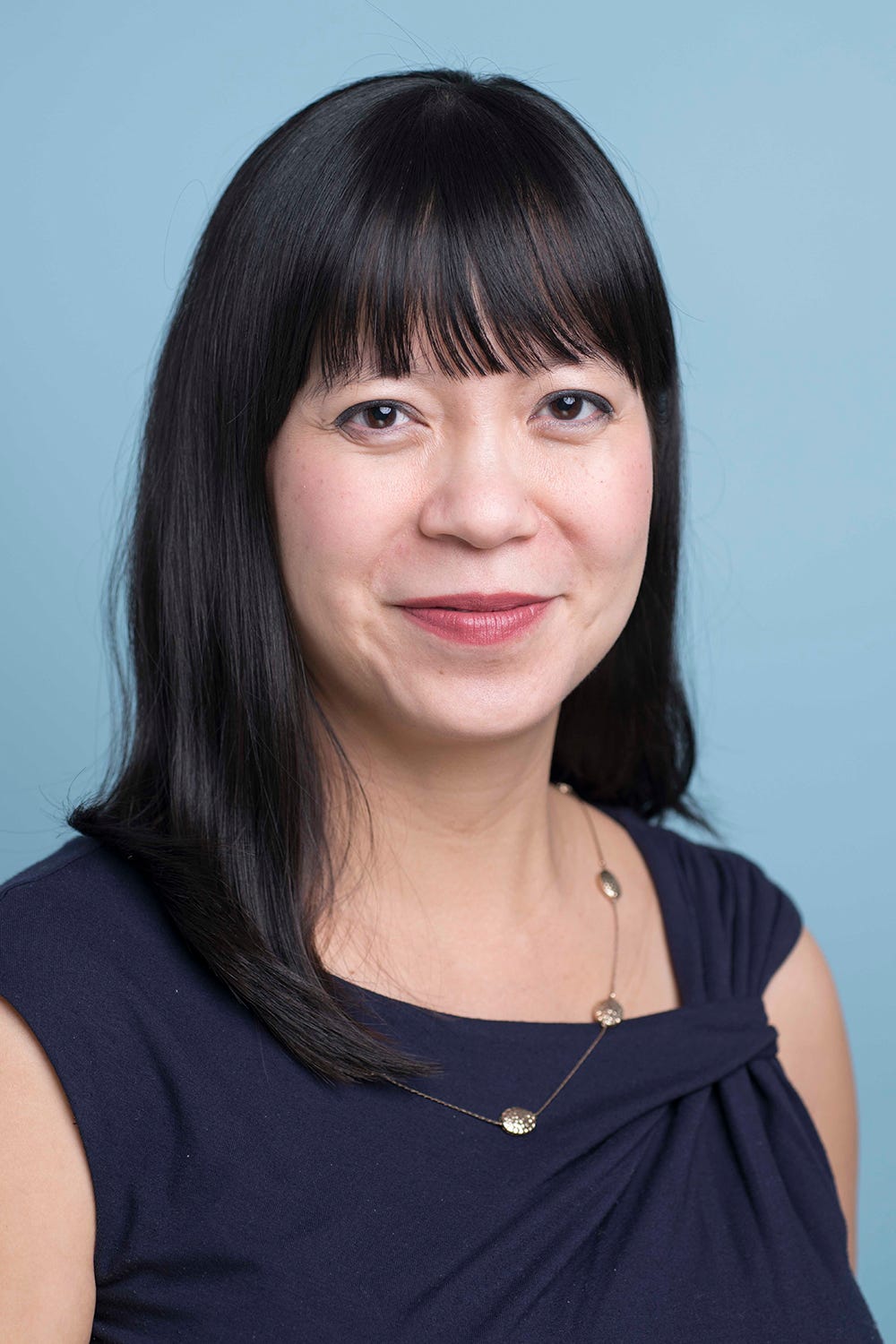
Problems aren’t always problems. One of my former bosses, Steven Rubenstein, taught me that there are always multiple solutions to every problem and that problems aren’t always problems, but also sometimes, opportunities. It’s all about your perspective!
As a part of our series about women who are shaking things up in their industry, I had the pleasure of interviewing Virginia Lam Abrams.
Virginia Lam Abrams is co-founder and Executive Vice President of Government Affairs and Strategic Advancement for Starry, a next generation, licensed fixed wireless broadband provider. At Starry, Virginia leads the company’s digital equity program, Starry Connect, advocates for Starry in front of governmental agencies at the local, state and federal level, and engages with policymakers and the public interest community in advancing pro-consumer policies that promote competition, affordability and equitable access in the broadband marketplace.
Thank you so much for doing this with us! Before we dig in, our readers would like to get to know you a bit more. Can you tell us a bit about your “backstory”? What led you to this particular career path?
Gosh, when I look back on my career, I also wonder: How did I get here? It was certainly not a straight path!
I went to Northwestern University’s Medill School of Journalism with the express purpose of becoming a journalist, but four internships later and graduating into an economy that was just about to go into recession forced me onto a different and, what I perceived to be, a more stable path. I ended up at a consulting firm, but after two years, I felt like something was missing. That’s when I made what was probably one of the riskiest career decisions of my life: I left a lucrative career in the private sector and accepted a public sector fellowship with the City of New York, called the Urban Fellows. I took a 75% pay cut, lived in a 9×9 room in Brooklyn, and probably ate more ramen and cheap burritos in that one year than I ever have in my life! But, it was the most consequential and the best decision I could have ever made.
I left Chicago and moved to New York City in July 2001 and two months later, the entire world changed on September 11th. I spent my fellowship year working in the New York City Fire Department (FDNY)’s Press Office, having been placed there because of my journalism experience. For three solid weeks, I helped write obituaries for the 343 members of the department that had perished on that day. It was heartbreaking and emotionally grueling work, but it had purpose and it was a crucial part of documenting history and helping families grieve. My fellowship year at the FDNY was a turning point in my career because I became hooked on public service and the need to make a meaningful impact through my work. I knew I could never have a “normal” job again.
After my fellowship was complete, I returned to Chicago to work on a US Senate primary campaign for a little-known gentleman who was running against a then little-known Illinois State Senator named Barack Obama. We obviously all know how that turned out! But, that loss allowed me to return to New York City and the FDNY for my second stint in government service. From there, I moved on to work in the Mayor’s Office as a deputy press secretary for Mike Bloomberg. After a few years, I took a break and left for the private sector again, where I had the privilege of working with the legendary Howard Rubenstein and his son, Steven, at their firm. I worked on a diverse portfolio of clients in the media, technology, real estate and nonprofit sectors, honing my communications and advocacy skills. But, the siren song of politics and government was never far away. I took a leave of absence to work on another political campaign and when I returned to the firm, was approached with an opportunity to lead communications and government relations for a disruptive streaming media start-up called Aereo.
Aereo was a critical turning point, in that it allowed me to finally “specialize” in one field. In my previous roles in both government and the private sector, you had to work across a diverse set of issues and clients, making you a “jack of all trades’’. You know enough to be smart and strategic about your work, but you never have the luxury of being an “expert” in any one industry. As the saying goes: you’re an inch deep and a mile wide. With Aereo, I finally got to be a mile deep. It was exciting to focus on one issue area and on one “client.” And with Aereo’s disruptive technology entering the market at the advent of the streaming revolution, it was a roller coaster ride all the way to the US Supreme Court. It was a formative and bonding experience for all of us that worked there.
While the end of the Aereo wasn’t what we all had hoped it would be, it did set up the next chapter of my career with Starry. With Starry, I have the privilege of being a co-founder, helping build a company from scratch to what it is today: a publicly traded company with more than 800 employees working to create more affordable, high quality broadband access across the country. It is enormously satisfying to go to work every day knowing that I have the opportunity to make a meaningful impact in an area that has become so critical to our daily lives.
Careers don’t always follow a linear trajectory and mine certainly didn’t, but I’m a firm believer that sometimes you need to zig when others zag. As long as you find meaning and satisfaction in what you do, you’re going to be okay.
Can you tell our readers what it is about the work you’re doing that’s disruptive?
In the United States, there’s a fundamental imbalance in the broadband access marketplace. For most Americans, we don’t have a choice when it comes to who provides us with home internet service. That lack of competition translates into higher costs and a poor customer experience. Starry’s founding premise was to develop and build technology that lowers the cost of connecting homes to fiber-quality internet access, so that we can increase affordability and drive competition in the market. Home broadband access is no longer a ‘nice to have’ — it’s essential, and far too many families in the US go without adequate home internet service.
Starry developed and built our own wireless ‘last mile’ technology that dramatically reduces the time and cost of connecting a home to fiber-quality internet access. Instead of digging up streets and sidewalks to lay a physical wire to your home, we connect you via a high-capacity licensed fixed wireless signal. That means we can build networks faster, deliver high-quality service to customers, and do it all at a fraction of the cost of pulling a wire to your home. In addition to developing and manufacturing all of our own technology, we’ve built world-class cloud-based software systems that help us deliver a customer experience that is delightful — not frustrating. The mere act of bringing choice and affordable broadband options to customers and delivering a delightful customer experience is highly disruptive to an industry that has effectively evolved into a collection of near-monopolies across the country.
You add to that a deep commitment to equitably serving all our communities, including a priority to serve public and affordable housing, and you have the ingredients for positive disruption in a space that has been immune to disruption for over a generation.
Can you share a story about the funniest mistake you made when you were first starting? Can you tell us what lesson you learned from that?
This is a tough one! Making mistakes is an important part of the learning process. I firmly believe that we learn more from our failures than we do our successes. Keeping that perspective helps build resilience, which is deeply important when you’re trying to achieve difficult goals.
A mistake I’ll always remember (not sure it’s a funny one!) is from my time working at the FDNY. I was responsible for helping manage some of the large-scale donations that were being given to the department from all around the country and the world and one group of school children had raised enough funds to purchase a new fire engine, after learning that so many department apparatus had been damaged and destroyed on 9/11. We organized a press event at a Brooklyn firehouse to announce the donation and I forgot to invite the local City Council member to attend. Boy, did I get an earful at the event when he showed up! I was 23, totally rattled, and had to dig deep to keep my composure. I apologized, said it would never happen again and to this day, whenever we program community events, I always make sure we invite all of the local officials!
What’s the lesson in this? Know your audience and your community and cover all your bases!
We all need a little help along the journey. Who have been some of your mentors? Can you share a story about how they made an impact?
I’ve been fortunate in that my life has been peppered with so many people who have been generous with their time and their counsel throughout my career. My earliest mentor was an editor at the Detroit Free Press named Joe Grimm. At the time, he was leading recruiting for Knight-Ridder newspapers (a now-defunct newspaper group) and he encouraged me to get outside my comfort zone and apply for internships in places that I had never heard of (much less been to). That’s how I ended up in Duluth, Minnesota for a summer (Duluth News-Tribune) and then subsequently, in Philadelphia (at the Philadelphia Daily News and Philadelphia Inquirer). I’m forever grateful for Joe’s guidance and his confidence in me. Without that push, I would never have these great reporting experiences.
At the FDNY, Frank Gribbon (Deputy Commissioner of Public Information) was not only my boss, but an important mentor who helped me navigate the politics of the department, sharpen my writing skills and taught me how to be an honest broker of information, but still remain a fierce advocate and protector of the department. He entrusted me with a lot of responsibility with a simple request: if you don’t know something, ask for help. He taught me that PR is not bravado and bluster and that storytelling and context is a powerful tool. His practice of PR was grounded in his past experience as a journalist and that meshed well with my training from Medill. As a manager, he always sang the praises of his team and their work and that’s something I’ve tried to model with my own team. I’m deeply appreciative of his guidance and his honest feedback because it has helped shape my career in ways both expected and unexpected. We remain good friends to this day and that is something I’m truly grateful for.
In today’s parlance, being disruptive is usually a positive adjective. But is disrupting always good? When do we say the converse, that a system or structure has ‘withstood the test of time’? Can you articulate to our readers when disrupting an industry is positive, and when disrupting an industry is ‘not so positive’? Can you share some examples of what you mean?
Disruptive is probably one of the most overused terms in business today. “Disruption” has an evolutionary cycle all its own. Something that initially starts out as positive disruption can easily morph into negative disruption.
Take for example the news and social media. The internet and social media platforms disrupted the traditional business models of news organizations (specifically print media). The initial disruption was both good and bad. It was good, in that these social media platforms democratized access to information globally and created bigger (and unlimited) audiences. However, news organizations were slow to figure out how to monetize this new world and struggled to stay solvent. Unfortunately, many news organizations (particularly local news organizations) didn’t make it, creating a void that became increasingly filled with less legitimate sources of information, which then was exploited and evolved into the disinformation crisis we’re experiencing today. That’s a very high-level explanation, but a very clear example of the pendulum of disruption swinging from good to bad in a very short period of time.
Can you share 3 of the best words of advice you’ve gotten along your journey? Please give a story or example for each.
- Know what you don’t know. My college advisor, the late Richard Schwarzlose, said to me once that it’s important to know what you don’t know. It was in the context of a reporting and writing class, but it’s advice that I think rings true in life. Know thyself and in order to do that, you have to be honest about what you know and what you don’t know. That’s why asking questions is important and why making assumptions can be dangerous. In this age of disinformation, I think it’s more important than ever.
- Asking for help isn’t a sign of weakness; it’s a sign of intelligence. One of my mentors, Frank Gribbon, once said this to me and it has stuck with me. It follows the “know what you don’t know” mantra, in that if you don’t know something, ask for help. Confident, intelligent people know when they need help and they’re comfortable asking for it.
- Problems aren’t always problems. One of my former bosses, Steven Rubenstein, taught me that there are always multiple solutions to every problem and that problems aren’t always problems, but also sometimes, opportunities. It’s all about your perspective!
We are sure you aren’t done. How are you going to shake things up next?
At Starry, we’re just getting started and we have a long and exciting journey ahead of us as a company. For me, the challenge will be how to scale the positive impacts we’ve been making through our digital equity program, Starry Connect.
There’s so much more work to be done in making sure that affordable broadband access is universally available across every US household. I’m confident we’ll get there, but until we do, I’m going to keep our focus on expanding access to the communities that need it most and raising the alarm on key policy issues that will drive competition, affordability and equitable access.
In your opinion, what are the biggest challenges faced by ‘women disruptors’ that aren’t typically faced by their male counterparts?
I think for women there exists a tremendous amount of pressure to be “perfect” in every aspect of our lives and that also applies to being a “disruptor.” Women have to disrupt in the “right” way or we run the risk of not being taken seriously or creating a reputational risk that stains our careers. Not only that, we have to be career-focused, but not so much that we risk not being a great parent, a supportive partner or a productive community member. In today’s society, I’m not allowed to focus on my career at the expense of my children or partner because then, well, I’m perceived as being selfish. I can have a fabulous career, but I better not be a crap mom or wife because that’s what I’ll be remembered for.
It’s a LOT to take on, and that burden is reinforced by our society. But, it’s also often self-inflicted because women internalize this crazy notion that in order for us to be truly considered successful in life, we MUST EXCEL IN EVERYTHING.
I don’t think men have that same pressure or expectation and that’s a real luxury.
Do you have a book/podcast/talk that’s had a deep impact on your thinking? Can you share a story with us?
This is a tough one to answer. There’s so much great content out there that it’s really hard to nail down one thing… but there is one book that left a tremendous impression on me: “The Short and Tragic Life of Robert Peace” by Jeff Hobbs.
This book is fundamentally about the systemic inequities that perpetuate the cycle of poverty and violence in communities of color. It highlights that access to opportunity is only one piece of the puzzle and that the absence of foundational support structures (like community and family) and the overwhelming burden of reinventing oneself and bending to societal “norms’’ that shape conventional definitions of “success” become the very traps that continue to hold people back. Solving systemic inequities and systemic disrimination is complicated and this story of Robert Peace’s life, while highlighting an individual man’s struggle, is really an indictment of our society and how far we still have to go to create an equal and level opportunity field.
A lot of this served as an inspiration for the work that we do with our Starry Connect program and how we engage with the communities we serve. We’re a broadband provider, but through our Connect program we deepen our ties to our public and affordable housing communities by bringing partners and programs that help support the overall well-being of the residents we serve. It’s not just ‘let’s sell them broadband,’ but also can we find a partner that will provide access to low-cost computers or digital literacy classes? Can we find a partner that will help us build a computer lab or community lending library to support ongoing learning for the children in the community? Can we find resources to help combat food insecurity? This ‘whole community’ approach is a signature feature of our Starry Connect program and something I’m deeply proud and passionate about and it’s inspired in part by Robert Peace’s life story.
You are a person of great influence. If you could inspire a movement that would bring the most amount of good to the most amount of people, what would that be? You never know what your idea can trigger. 🙂
We’re living in incredibly difficult and polarizing times. It’s deeply concerning to me that our society has moved away from a community mindset to one that is more individualistic and frankly, more selfish.
If I could start a movement, it would be a movement focused on kindness and community. Much like the Japanese Shinto religion, the concepts of respect for nature, family and community-first (rather than the individual) should really be central to how our world operates. Making decisions that benefit the whole, would leave our world in a much better place than we are today. Today, we’re so focused on ME that the WE gets lost — and that’s what holds us back from making the important decisions and changes we need to create a better world for all.
Can you please give us your favorite “Life Lesson Quote”? Can you share how that was relevant to you in your life?
Treat people the same way you want to be treated. That’s something my parents ingrained in me as a child and it’s a life lesson that I take very seriously and try to instill in my own children. Being respectful, honest and kind to others is something that will pay you back in spades. People remember kindness and hopefully, use that as an opportunity to pay it forward in the universe.
How can our readers follow you online?
I’m not very active on social media, but I do occasionally go on a tweet rant! You can follow me @virginialamnyc on Twitter or Virginia Lam Abrams on LinkedIn.
This was very inspiring. Thank you so much for joining us!
Female Disruptors: Virginia Lam Abrams of Starry On The Three Things You Need To Shake Up Your… was originally published in Authority Magazine on Medium, where people are continuing the conversation by highlighting and responding to this story.

